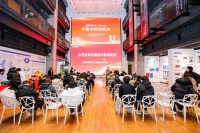研究表明基于传感器的健康监测如何帮助解决与年龄相关的健康问题
Research shows how sensor-based health monitoring could help tackle age-related health problems
分享智慧
共同成长
Full text
Specific changes in our movement patterns can be indicators of several health problems: For instance, decrease in strength often correlates with risk of falls, mild cognitive impairment, depression, sleep problems, respiratory problems, cardiac arrhythmias and increasing myocardial weakness or worsening of a COVID-19 infection. In older individuals, systematic detection of such changes could help identify chronic diseases such as dementia, Parkinson's disease, or heart disease at an early stage. These age-related health problems are often discovered late, and their progression is usually difficult to assess objectively.
An interdisciplinary research team led by Tobias Nef of the ARTORG Center for Biomedical Engineering Research, and Professor Emeritus of Cardiology Hugo Saner of the University of Bern and Bern University Hospital, now shows how large-scale, sensor-based health monitoring could tackle these problems. The researchers combined a variety of everyday activity and behavior patterns measured by sensors in the homes of elderly study participants helping them to create a summary picture.
We used non-contact sensors at home to create an extensive collection of digital measures that capture broad parts of daily life, behavior and physiology, in order to identify health risks of older people at an early stage."
Dr. Narayan Schütz, study first author and postdoctoral researcher
This may benefit early detection as well as foster development of personalized treatments and research into new therapeutic approaches and drugs. The study was published in npj Digital Medicine.
Reliable system accepted by seniors
The researchers initially collected 1,268 health parameters using non-interaction sensors particularly tailored to the senior demographic. The deployed system consists of simple, contactless motion sensors in each room, a bed sensor under the mattress, and door sensors on the front door and on the refrigerator. Connected to a base station, the system analyzes the registered motion signals and can inform relatives or an alarm center in the event of problems or emergencies – such as when a person does not return to bed at night. The researchers then evaluated the data collected in this way using machine learning approaches.
"We were able to show that such a systems approach – in contrast to the common use of a few health metrics – allows to detect age-relevant health problems such as cognitive impairment, fall risk or frailty surprisingly well," says Tobias Nef, Professor of Gerontechnology and Rehabilitation at the ARTORG Center and co-last author of the study. Compared to wearable devices, this sensor-based home monitoring approach was perceived well among seniors: As the interdisciplinary research group led by Tobias Nef and Hugo Saner was able to prove in a scientific collaboration of computer science, behavioral research and medicine spanning more than ten years, older test subjects in Switzerland found the daily operation of mobile devices rather cumbersome, and some were unable to handle them at all due to dexterity or cognitive problems. In particular, older adults above 80 years of age clearly preferred a zero-interaction system such as the one used in the study.
Great potential
The evaluation and combination of the large amount of everyday health data also offers the potential to identify possible new aging-relevant digital biomarkers: "For example, we found indications that fall risk could significantly depend on certain sleep parameters," explains Tobias Nef.
Prof. Hugo Saner, who was responsible for clinical data collection and is co-last author of the study, assesses the clinical relevance of the results: "Such a system marks a milestone in early detection of worsening health for seniors living alone into old age. We assume that it can make a significant contribution to enabling older people to live at home for as long as possible by delaying hospital admissions and transfers to nursing institutions or, in the best case, even avoiding them." According to the researchers, better early detection, and personalized treatment of typical diseases of old age would not only help older people achieve better health, but also reduce healthcare costs.
Source:
University of Bern
Journal reference:
Schütz, N., et al. (2022) A systems approach towards remote health-monitoring in older adults: Introducing a zero-interaction digital exhaust. npj Digital Medicine. doi.org/10.1038/s41746-022-00657-y.
全文翻译(仅供参考)
我们的运动模式的具体变化可能是几个健康问题的指标:例如,力量下降通常与跌倒、轻度认知障碍、抑郁、睡眠问题、呼吸问题、心律失常以及心肌无力或 COVID 恶化的风险相关-19 感染。在老年人中,系统检测这些变化可以帮助早期识别慢性疾病,如痴呆、帕金森病或心脏病。这些与年龄相关的健康问题往往被发现较晚,而且它们的进展通常难以客观评估。
由 ARTORG 生物医学工程研究中心的 Tobias Nef 和伯尔尼大学和伯尔尼大学医院心脏病学名誉教授 Hugo Saner 领导的跨学科研究团队现在展示了基于传感器的大规模健康监测如何解决这些问题. 研究人员结合了老年人研究参与者家中传感器测量的各种日常活动和行为模式,帮助他们创建一个概要图。
我们在家中使用非接触式传感器创建了广泛的数字测量集合,捕捉日常生活、行为和生理的广泛部分,以便及早识别老年人的健康风险。”
Narayan Schütz 博士,研究第一作者和博士后研究员
这可能有利于早期发现以及促进个性化治疗的发展以及对新治疗方法和药物的研究。该研究发表在npj Digital Medicine上。
老年人接受的可靠系统
研究人员最初使用专为老年人量身定制的非交互传感器收集了 1,268 个健康参数。部署的系统由每个房间中简单的非接触式运动传感器、床垫下方的床传感器以及前门和冰箱上的门传感器组成。该系统连接到基站,分析注册的运动信号,并在出现问题或紧急情况时通知亲属或警报中心——例如当一个人晚上没有回到床上时。然后,研究人员使用机器学习方法评估了以这种方式收集的数据。
“我们能够证明,这种系统方法——与通常使用一些健康指标相比——可以很好地检测与年龄相关的健康问题,如认知障碍、跌倒风险或虚弱,”教授 Tobias Nef 说ARTORG 中心的老年技术和康复博士,也是该研究的共同最后作者。与可穿戴设备相比,这种基于传感器的家庭监控方法在老年人中得到了很好的评价:由 Tobias Nef 和 Hugo Saner 领导的跨学科研究小组能够在跨越十多个计算机科学、行为研究和医学的科学合作中证明多年以来,瑞士年长的测试对象发现移动设备的日常操作相当繁琐,有些人由于灵巧或认知问题根本无法处理。
此外,数据保护和隐私被优先考虑:“为了确保技术层面的隐私和数据保护,采用了最高的瑞士和欧洲医疗数据安全标准”,Narayan Schütz 指出。为了保护隐私,部署的传感器也不会记录声音或视频,而且它们的安装完全是自愿的——这两个方面都得到了研究参与者的赞赏。
潜力巨大
大量日常健康数据的评估和组合还提供了识别可能与衰老相关的新数字生物标志物的潜力:“例如,我们发现跌倒风险可能在很大程度上取决于某些睡眠参数的迹象,”Tobias Nef 解释说。
负责临床数据收集的 Hugo Saner 教授是该研究的共同最后作者,他评估了结果的临床相关性:“这样的系统标志着早期发现独居老年人健康状况恶化的里程碑。. 我们认为它可以通过推迟入院和转移到护理机构,或者在最好的情况下,甚至避免它们,为使老年人尽可能长时间地住在家里做出重大贡献。” 研究人员表示,对老年典型疾病进行更好的早期发现和个性化治疗,不仅可以帮助老年人获得更好的健康,还可以降低医疗成本。
THE EN
本文由“健康号”用户上传、授权发布,以上内容(含文字、图片、视频)不代表健康界立场。“健康号”系信息发布平台,仅提供信息存储服务,如有转载、侵权等任何问题,请联系健康界(jkh@hmkx.cn)处理。
相关知识
健康监测传感器的研究进展
用于健康与健身应用的传感器技术
可穿戴式健康监测系统研究与展望
柔软灵活的无线传感器可监测婴儿和产妇健康
综述:用于生理状况和活动监测的可穿戴传感器
如何正确判断和监测心率的变化与健康状况
健康监测设备
人工智能与医疗健康产业系列研究之七:人工智能医用软件的注册及监管问题
首席智能睡眠健康顾问 Sleepace监测器评测
智慧健康丨可穿戴健康监测系统:实时监测,守护健康
网址: 研究表明基于传感器的健康监测如何帮助解决与年龄相关的健康问题 https://www.trfsz.com/newsview143279.html
推荐资讯
- 1发朋友圈对老公彻底失望的心情 12775
- 2BMI体重指数计算公式是什么 11235
- 3补肾吃什么 补肾最佳食物推荐 11199
- 4性生活姿势有哪些 盘点夫妻性 10428
- 5BMI正常值范围一般是多少? 10137
- 6在线基础代谢率(BMR)计算 9652
- 7一边做饭一边躁狂怎么办 9138
- 8从出汗看健康 出汗透露你的健 9063
- 9早上怎么喝水最健康? 8613
- 10五大原因危害女性健康 如何保 7828






